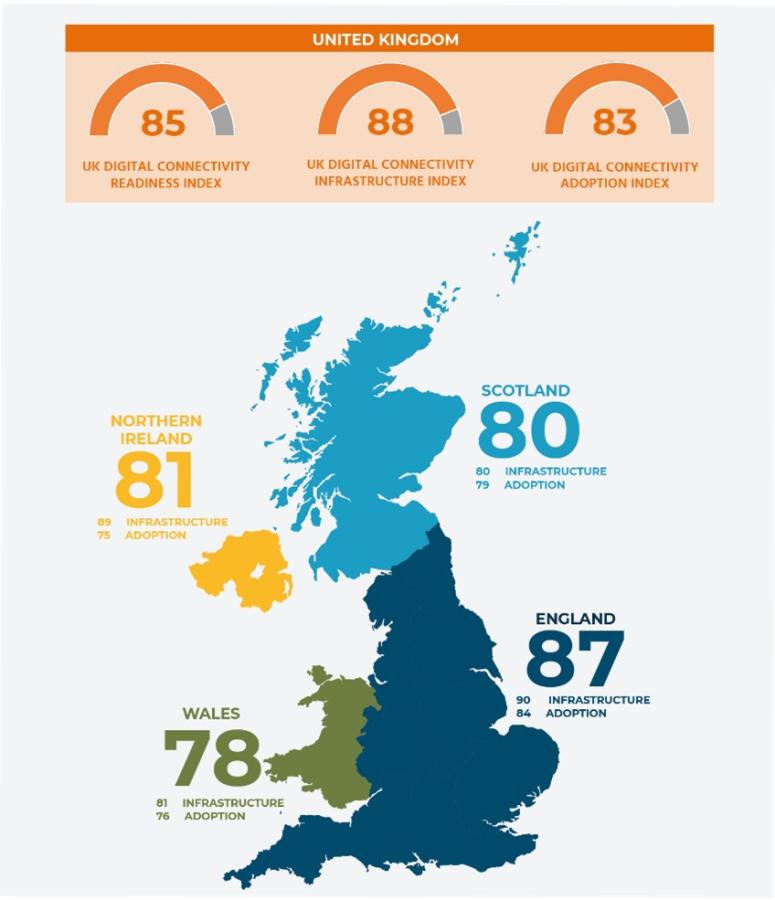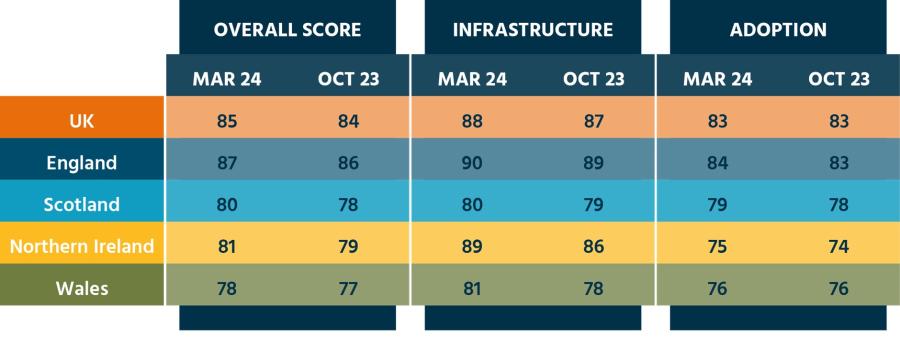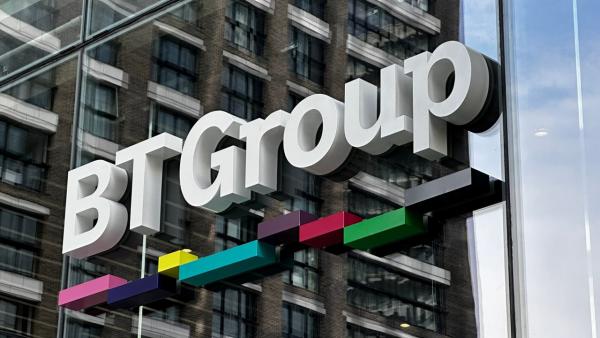
Regular analysis by connectivity experts FarrPoint evaluates connectivity preparedness across the four UK nations

All UK nations are steadily improving their performance on digital connectivity infrastructure, but progress on adoption is stalling - according to a benchmarking framework by connectivity consultants, FarrPoint.
FarrPoint’s Digital Connectivity Readiness Index (DCRI), first launched in autumn 2023 and due to be published three times a year, was designed to help policy makers and digital leaders understand how they perform across both digital infrastructure and adoption.
In the second DCRI report, the UK’s headline readiness score improved slightly since October 2023 – from 84 to 85. Below this, each of the nation’s saw improvements in their overall score, with England scoring 87 out of a possible 100, followed by Northern Ireland, Scotland and Wales with scores of 81, 80 and 79 respectively.
As well as an overall score, the UK and each individual nation were also given sub-scores for infrastructure and adoption. All infrastructure scores improved, but on adoption, points stayed the same for England and Scotland, but fell slightly for Wales and Northern Ireland.

The scores contained within the DCRI are based on key metrics gathered from a series of data sources, including Ofcom and the Office for National Statistics. A robust approach to weighting has been used to ensure the indicators take into account commercial, regulatory and policy prioritisation considerations*. This delivers a result that is not only accurate, but also helps deliver real value when it comes to designing digital connectivity infrastructure, adoption and inclusion projects.
The analysis showed a range of differences in performance between the four nations on infrastructure and adoption:
- England remains by far the best performing home nation on both infrastructure (90) and adoption (84). These improvements are driven by strong investment, network rollout of Gigabit services, and enhancements in 5G coverage. The adoption index saw an increase in six out of eight key indicators, including advancements in digital skills and home internet access.
- Scotland’s score for infrastructure (80) was only a slight improvement on its October 2023 score of 79. This reflects the challenge of rolling out networks across remote rural regions, although progress has been made on both 5G and Gigabit. When it came to adoption (79), Scotland scored well on the digital economy, online wellbeing and security indicators but scores decreased on digital skills and affordability. This was due to skills shortages being raised by businesses as a key issue and a rise in the number of workers earning below the Living Wage. Together this led to digital subscription cancellations.
- Northern Ireland is still seeing a significant difference in performance between infrastructure (89) and adoption (75). The high infrastructure score has been driven by continued public sector spending on Project Stratum, as well as commercial roll out. On adoption, it also performed strongly on many indicators. However, a marginal fall in public sector spending, led to a decrease in the country’s score for accessible public services. There was also a slight fall in the security online indicator.
- Wales saw another sizeable gap between infrastructure (81) and adoption (76) performance due to a three-point rise in its infrastructure score. Its adoption index also fell slightly. The country performed well on improved 5G coverage and a continued strong rollout of Gigabit networks. However, it’s adoption score was lower due to challenges around affordability and a fall in the number of people working in digital over the period measured.
Matthew Izatt-Lowry, Senior Economist at FarrPoint, said: “Digital connectivity plays an increasingly crucial role in enabling economic growth, advancing progress towards achieving Net Zero goals, and enhancing social wellbeing.
“Our latest DCRI results show that all four UK nations have built upon their strong position to harness the full potential of digital, with overall headline scores increasing across all four nations. Because activity within the sector has largely focussed on the rollout of infrastructure networks, the results continue to be strongest on the infrastructure side. But without widespread adoption, this alone doesn’t yield any tangible benefits for households, communities or business.
“Unfortunately, the picture on the adoption front is less positive, and is much more mixed across the four nations. Progress has been made on indicators such as increasing general levels of people online and wellbeing, but challenges remain around affordability, skills and security.
“Decision makers within public bodies need to understand the strengths and challenges within their region to enable them to create an evidence-based digital strategy. We hope that our DCRI scores will help them to do that.”
The full report is available to download here https://www.farrpoint.com/news/dcri-march-2024/
The next FarrPoint Digital Connectivity Readiness Index results will be released in summer 2024.









